What a character!
More long, lost personalities
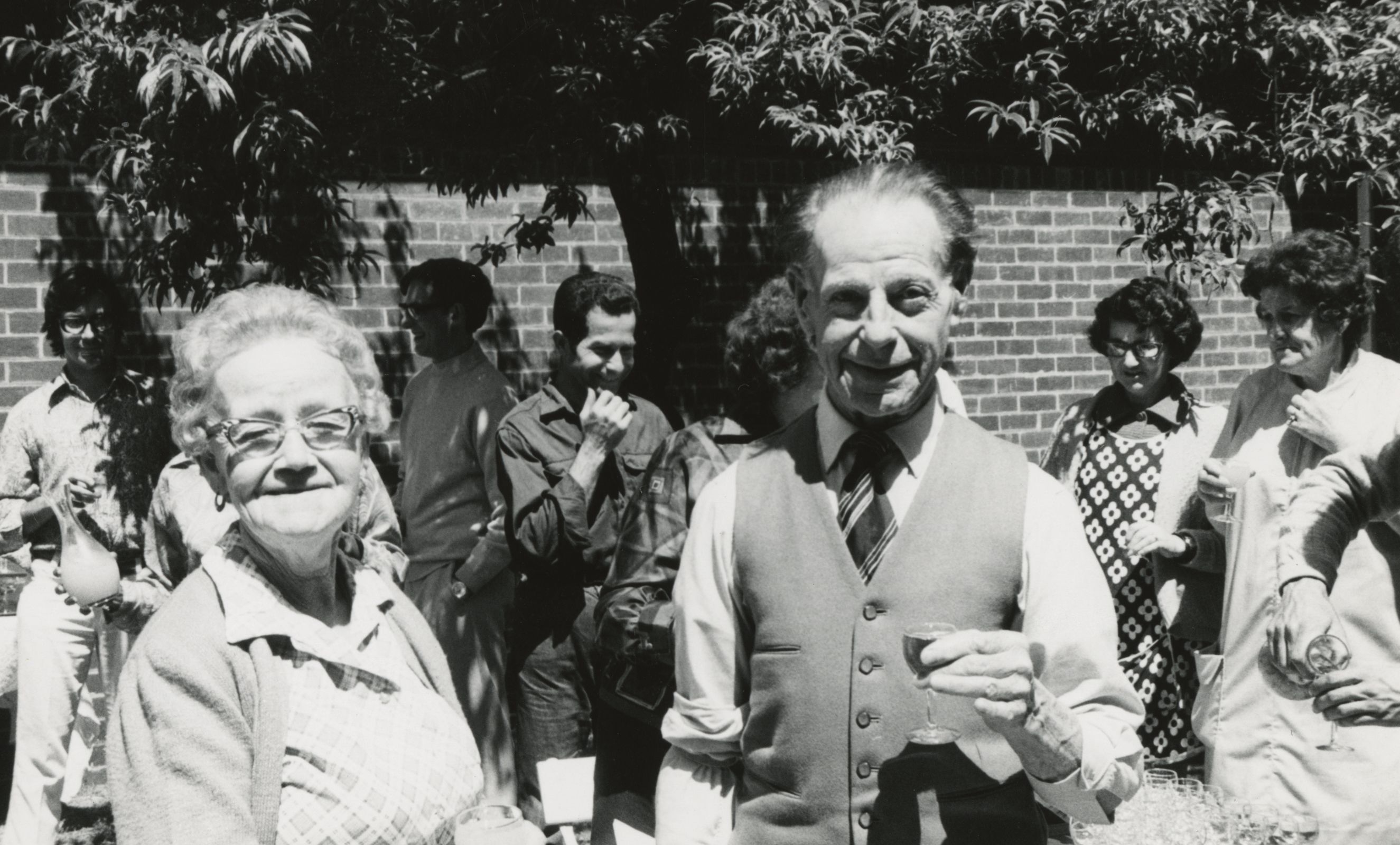
Fore more than 150 years, a community of staff – often unseen and indeed, unrecorded to history's pages; many consigned to the basement – have kept Trinity College running.
These aren't the credentialed academics or teachers, the administrators or executives; though they are critical to the success of an academic institution.
No, these are the roles that, in decades past, kept the gardens looking their best, attended to the washing of bedsheets and linens, replaced lightbulbs, and both oversaw and had a hand in the physical growth of the campus' built environment as the College rose to meet increasing student demand.
Through two world wars, troughs of economic uncertainty and shifting societal expectations on residential colleges, these staff formed the backbone of the College. And in the process, they endeared themselves through personal friendships and memories with generations of students.
These are some of their stories.
The Sandford sisters
Over the course of 150 years, literally hundreds of domestic staff have served the College in a variety of roles. In the early decades of the 20th century, when Trinity was a male-only residential college, these roles ranged from the College porter, a nurse, waitresses serving in the Dining Hall, to a small army of those - almost always women - that official records describe as undertaking 'home duties'.
With no official records of their employment held by the College, the breadth of these roles and the figures who held them are only now starting to come to light. Concerted research is addressing this 'gap' in our understanding of Trinity's history, giving names and identities back to these staff. And among the many, the story of the Sandford sisters stands out.
In 1908, Ellen Elizabeth Sandford was engaged at Trinity performing 'domestic duties', which likely encompassed the making-up of student bedrooms, washing and cleaning. She was one of at least six women attending to the College in this way, under the supervision of the then Matron, Augusta Harriet Annie Sturt.
Born in the closing decades of the 19th century at Katamatite, north-east of Shepparton and just south of the Victorian border, the Sandford Sisters had moved to Melbourne with their mother Mary by 1903, seven years after their father Henry had died. Financial imperative seems likely to have prompted the move, with the city providing more opportunities to support the family of nine children.
Here, Ellen initially found laundry work along St Kilda road, Melbourne’s Grand Boulevard lined on either side with the impressive mansions of the city’s social affluent. Her mother lived in West Melbourne, trying to make ends meet for the family by working as a cigarette maker.
Whether college work did not suit, or for other reasons, Ellen did not return to Trinity in 1909. She appears a few years later performing similar domestic work at a private residence in Walsh street, South Yarra.
Almost 16 years later, in 1925, a sister - Frances 'Nancy' Sandford - commenced at Trinity, working in the Warden's Lodge and attending the family of Warden John 'Jock' Behan, a returned alum. Within a couple of years, another Sandford sister, Maud, joined Nancy on the College's domestic staff.
Nancy and Maud would remain at Trinity into the 1930s, Nancy being the last of the two to leave in late 1934.
The Sandford sisters' story would have remained hidden were it not for a family member who earlier this year provided photos of three of the women, including Mary Louisa Daisy Sandford, wearing their domestic staff uniforms and likely taken either at Trinity or the family’s home in Brunswick in the late 1920s.
Through the resulting research into both the sisters and the contemporary domestic staff in the early decades of the 20th century, a picture is emerging of a community of staff roles that helped support and grow Trinity across its earliest decades.
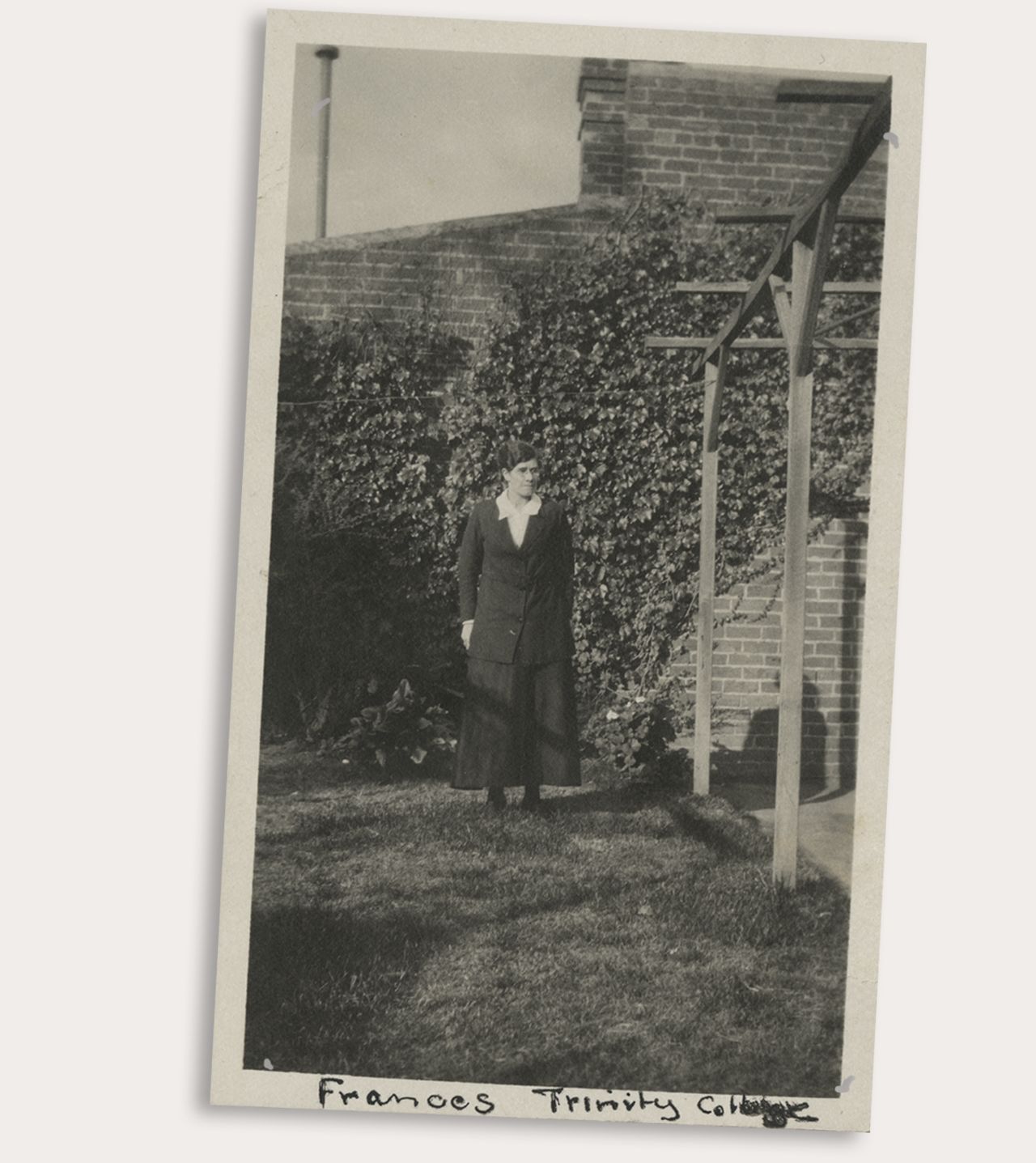
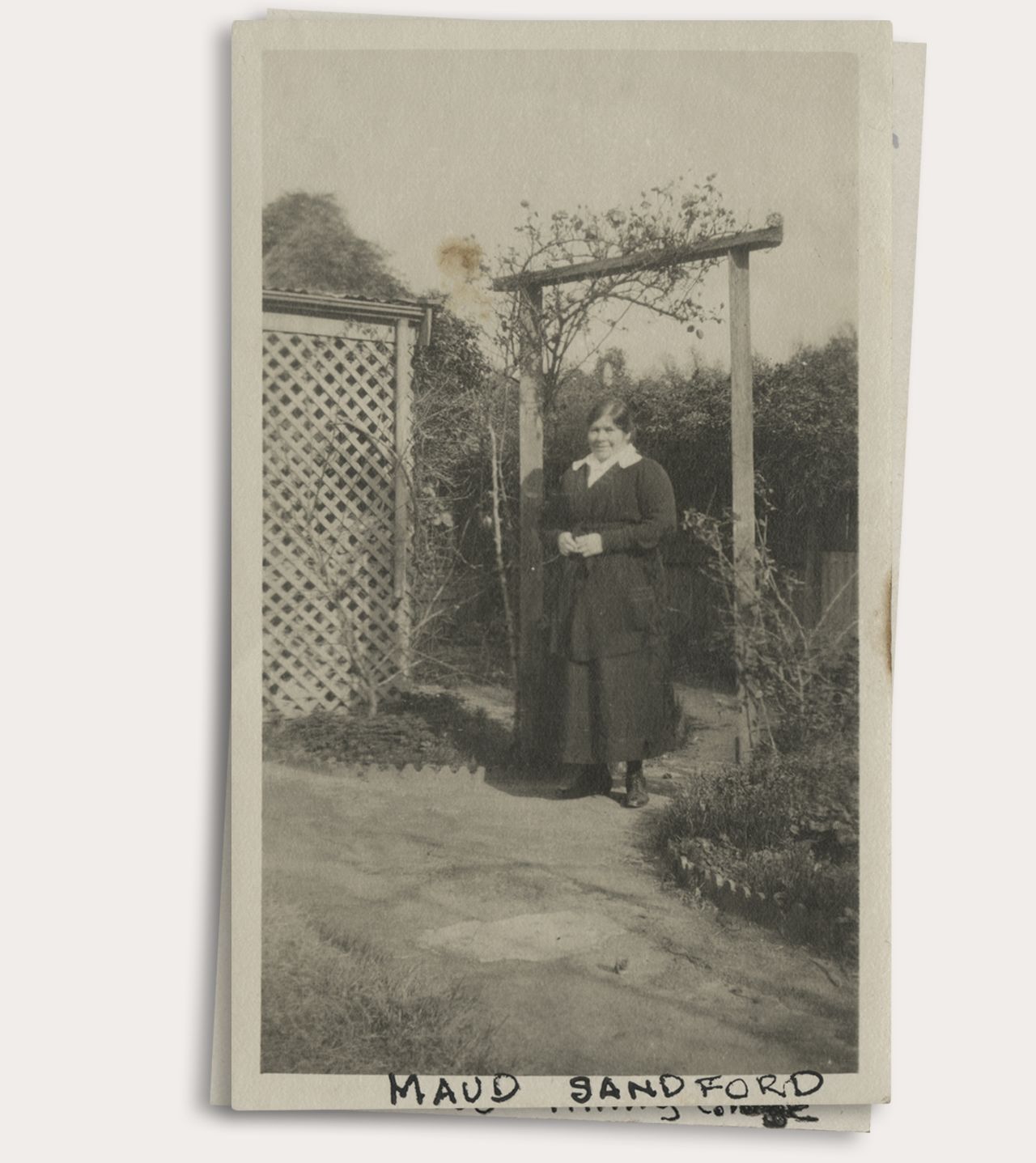
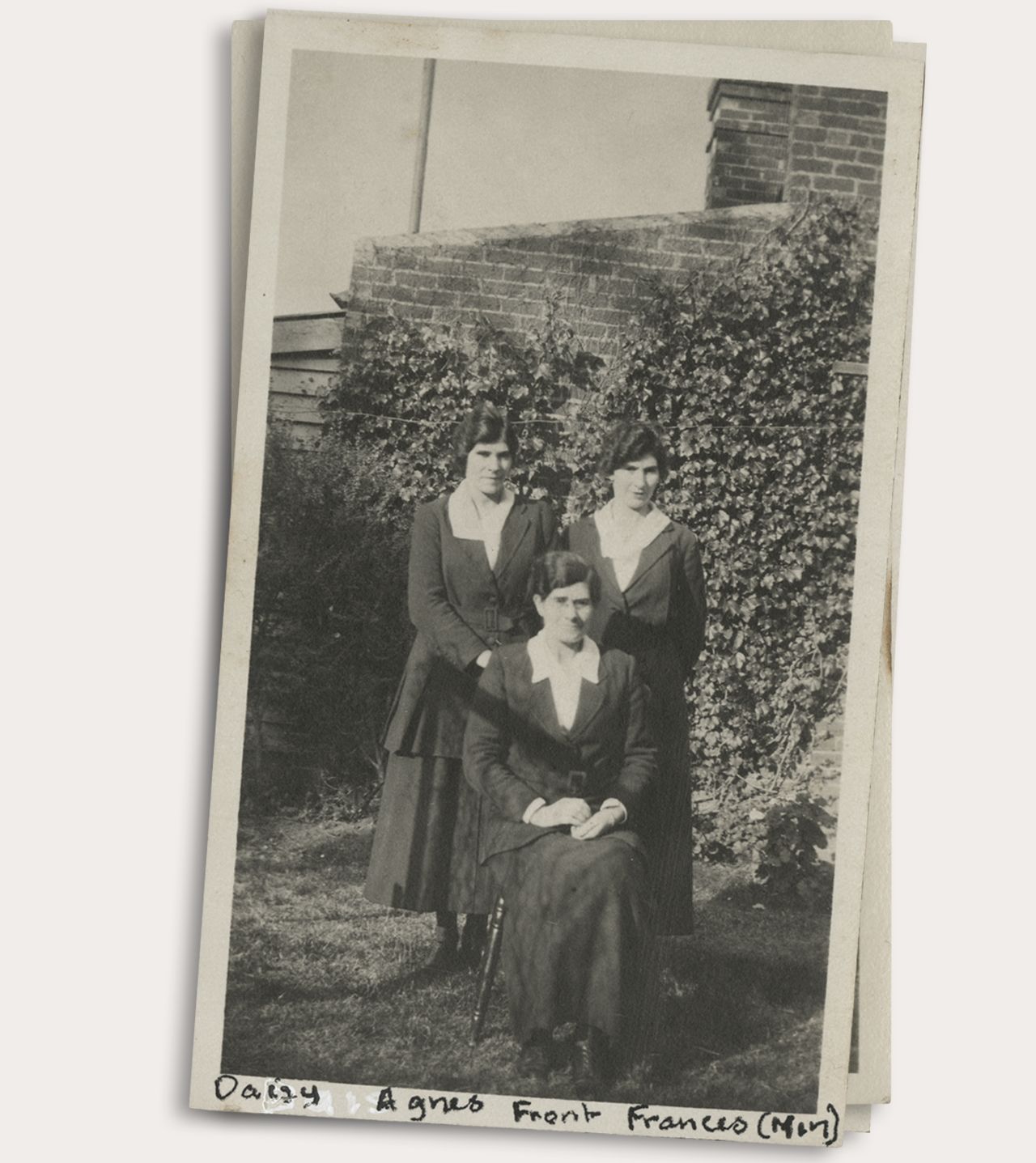
The 'Pantryman'
Albert George Radmall, 1907–1996
Alumni from decades past will likely remember a small kiosk ‘shop’ situated outside the main entrance to the Dining Hall, in what is today the College’s reception office.
This was Albert’s domain.
Albert George Radmall arrived at Trinity in the early 1960s, commencing in a role that was part College porter and part storeman – noted on more official records as the ‘Pantryman’.
He was born in June 1907 to British-born father Thomas George and Charlotte ‘Lottie’ Radmall. Thomas was a tobacco worker, while Lottie attended to the family’s home life, first in Clifton Hill, then Northcote, before the family moved down to Melbourne’s south-eastern suburbs in the 1930s.
Little is known of Albert’s life prior to Trinity. For a time, he worked on an egg farm in Nar Nar Goon North, east of Pakenham, and in the mid 1930s – as the lingering impacts of the Great Depression continued to reverberate – suffered a period of unemployment and was living with his parents. A fleeting mention reveals that he’d found work as a hairdresser at the point his father died in 1951.
Albert gained some notoriety during his time at Trinity however on 27 May 1971 – when the kiosk, which ordinarily sold cigarettes and other domestic items for the students – was held up at gun point by two young men brandishing a .22 rifle.
'This is a stickup', one of them brazenly declared … 'That’s a nice gun you’ve got there', Albert replied. As he admitted afterwards, 'I thought they were just kids playing some kind of joke.'
The unarmed accomplice grinned at Albert’s light humour, but the situation ended abruptly with the appearance of Trinity’s house manager Michael Mellenfield ('M Squared', as alumni of the era might recall), prompting the would-be bandits to flee. They were last seen scampering across the Bulpadock and out the main gates, across Royal Parade. Victoria Police however took it seriously. Within half an hour, four detectives were questioning a still bewildered Albert.
Albert retired a few years later and passed away in October 1996 while living in Greater Geelong. He is buried in the Barrabool Hills Cemetery where his headstone, perhaps rather appropriately, notes ‘a gentle man peacefully sleeping’.
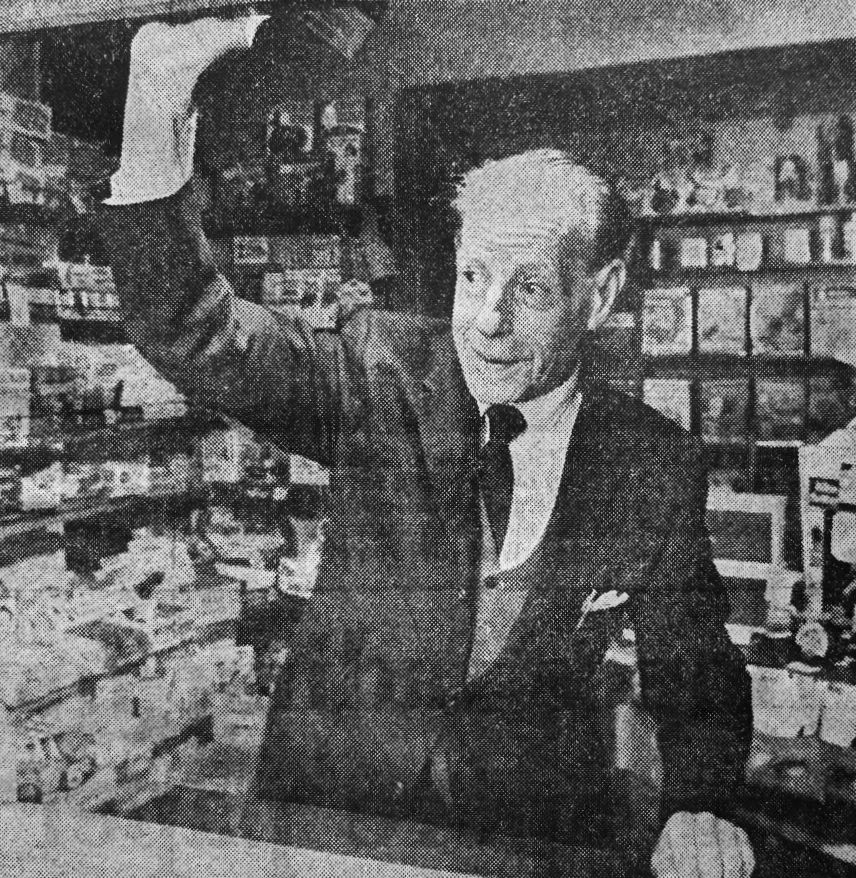
Albert Radmall manning the college kiosk, as he was on the day of the hold-up. 'The Age', 28 May 1971.
Albert Radmall manning the college kiosk, as he was on the day of the hold-up. 'The Age', 28 May 1971.
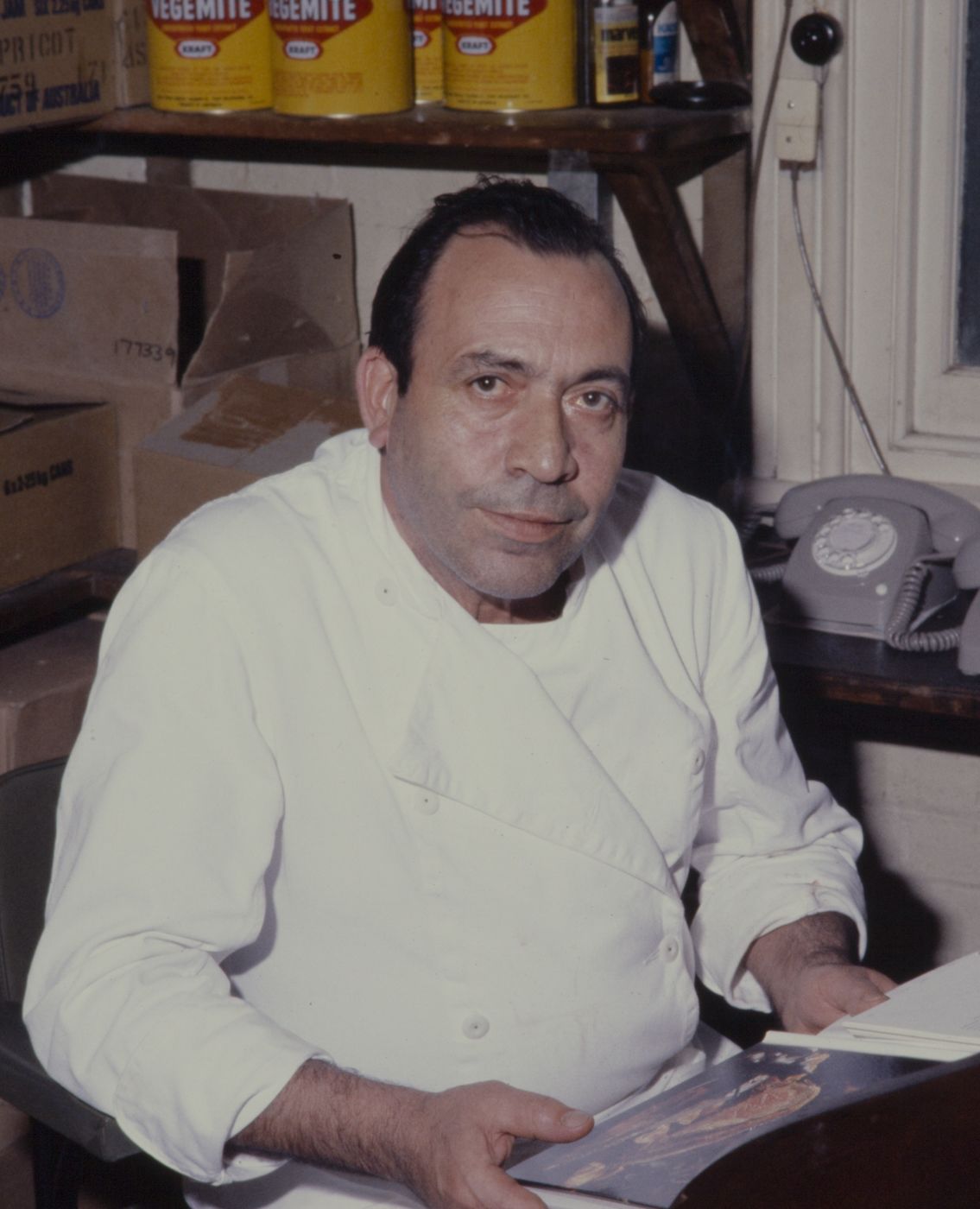
Don Grilli in his office, demonstrating that vegemite was served in some quantity in the 1970s!
Don Grilli in his office, demonstrating that vegemite was served in some quantity in the 1970s!
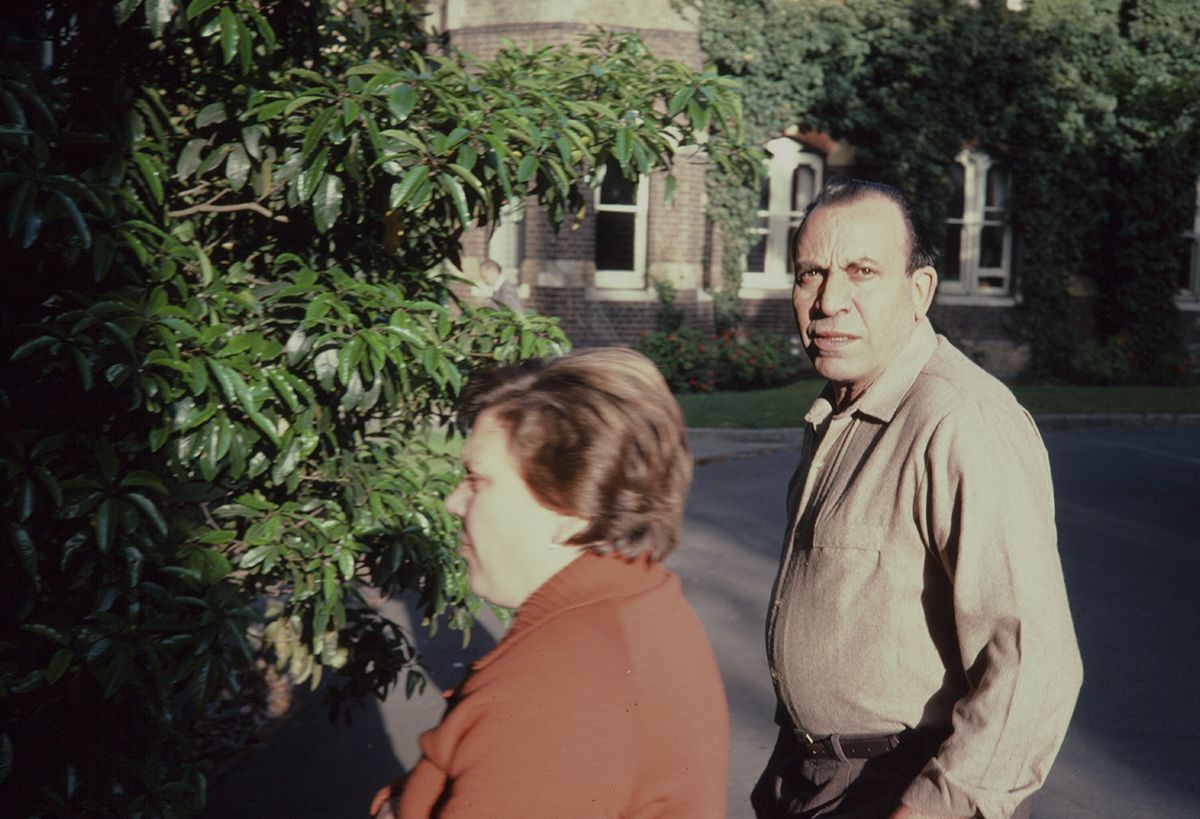
Don Grilli with a colleague on the main driveway near Bishops' Building, c. 1970s-80s.
Don Grilli with a colleague on the main driveway near Bishops' Building, c. 1970s-80s.
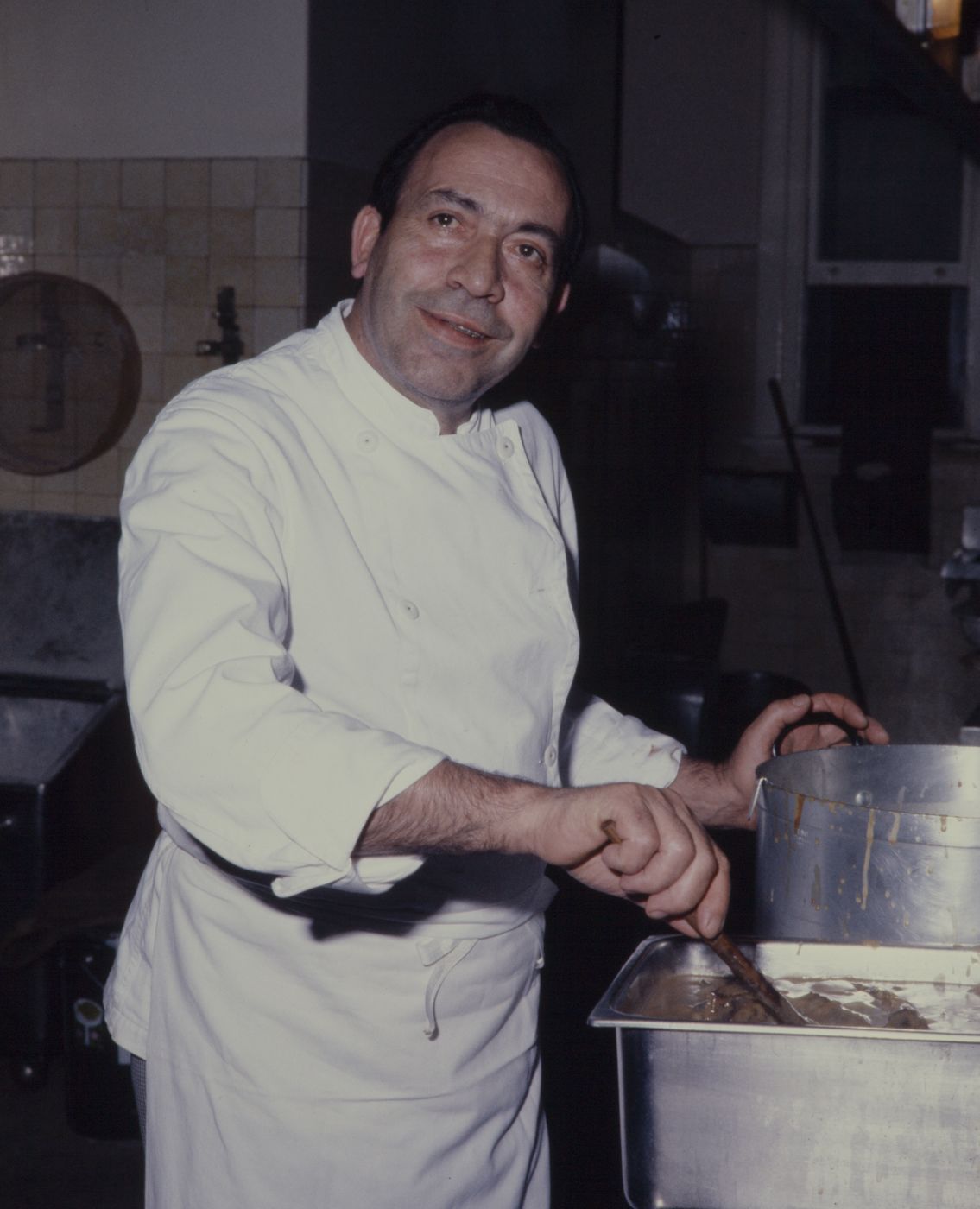
Don Grilli at home in the kitchen at Trinity College
Don Grilli at home in the kitchen at Trinity College
The Chef
Damiano 'Don' Malvestuto Grilli – 1996
For more than 20 years, following the renovation of the College's kitchens at the beginning of the 1960s, chef Don Grilli was responsible for feeding a hungry residential college of first men and - by the mid-1970s - the co-residential student population.
Don - or as his immigration papers reveal, Damiano Malvestuto-Grilli - arrived in Melbourne from his native Sulmona in the province of L'Aquila in Abruzzo, Italy, aboard the Surriento in August 1954, part of the wave of post-war European migration to Australia, particularly from those countries around the northern Mediterranean.
By the early 1960s, with the addition to campus of the new residential wing Memorial Building, aka 'Jeopardy', in 1958 and plans for the construction to commence for another residential wing on the western side of the Bulpadock (Cowan Building), Trinity's cooking facilities were in desperate need of being brought up to standard.
Don commenced in 1961 and Taffy Jones (TC 1957), who had been re-elected as Senior Student that year, remembers with warmth the 'immediate improvement in the Trinity food'.
Even with the subsequent renovations however, dwindling College finances in the 1960s and '70s limited creativity in the kitchen, and Don’s cuisine and the conditions of the kitchen is a distinctive memory for many alumni. Ian Manning (TC 1963), then a junior tutor at Trinity, recounts an unforgettable experience:
'One night I had occasion to visit the kitchen, so I opened the door, turned on the light and watched the place become alive with little black oblong shapes scuttling for the nearest shade.'
The following year, Manning was appointed a lecturer at Madras Christian College in Chennai, India, with a flat and small kitchen to live in. 'This kitchen, too, was alive with cockroaches, but thanks to Trinity, caused me no discomfort, as I was already familiar with harmless kitchen wildlife.'
Margot Foster's (TC 1976) assessment of 'the greasy chef Don Grilli and the chicken supreme springing from his condemned kitchen' or the 'High Church fish and chips on Friday nights and huge steaks and endless chips on Saturday nights', while brutal, is not without more than a hint of familiarity for many generations of students in Trinity at the time.
In 1981, in recognition of Don's 20-year service, Trinity provided Don with a paid trip for him, his wife Anna and their daughter to return to see family in Italy. Upon returning, Don took up a contract role with Ormond College, assisting Trinity with the infamous 'cook-chill' system, where – due to the College's ailing kitchen facilities – food was prepared in advance and heated at Ormond before being served at Trinity.
Sadly, illness compelled his retirement in 1983 and though he battled it for 12 years, it eventually won out. He died in August 1996.
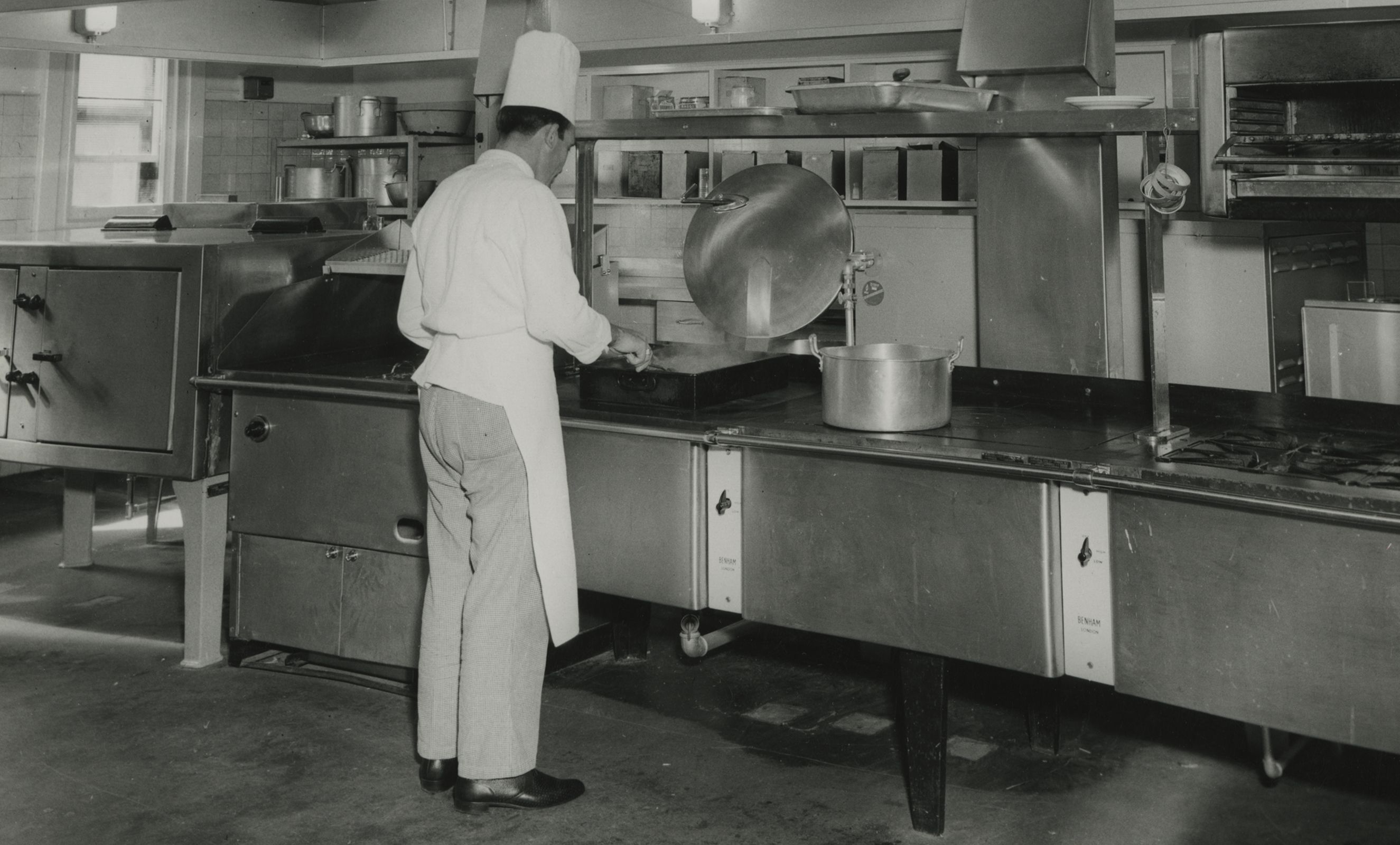

Dr Ben Thomas, Rusden Curator, Cultural Collections
curator@trinity.unimelb.edu.au





